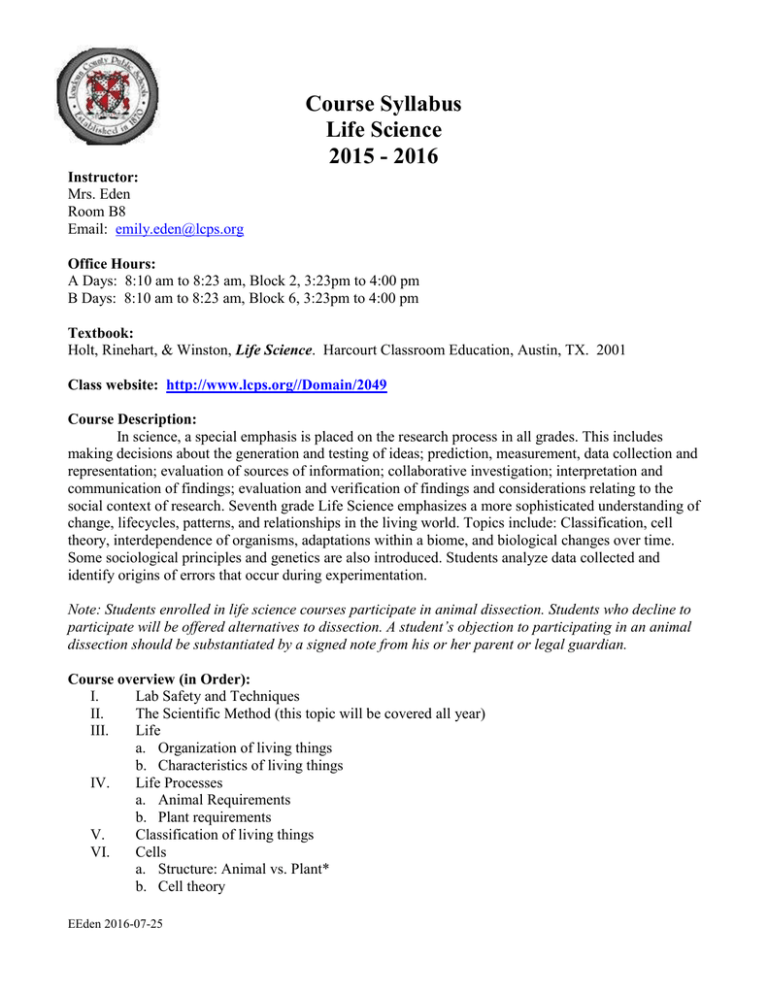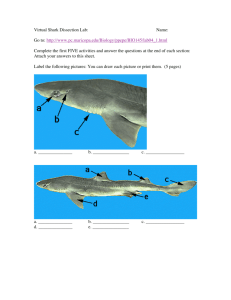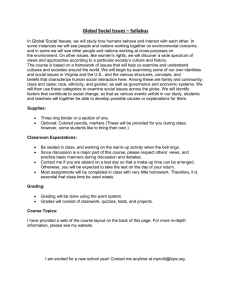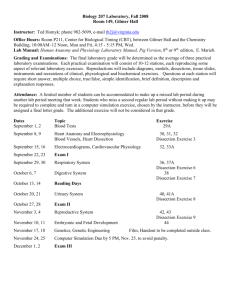Course Syllabus Life Science 2015 - 2016
advertisement

Course Syllabus Life Science 2015 - 2016 Instructor: Mrs. Eden Room B8 Email: emily.eden@lcps.org Office Hours: A Days: 8:10 am to 8:23 am, Block 2, 3:23pm to 4:00 pm B Days: 8:10 am to 8:23 am, Block 6, 3:23pm to 4:00 pm Textbook: Holt, Rinehart, & Winston, Life Science. Harcourt Classroom Education, Austin, TX. 2001 Class website: http://www.lcps.org//Domain/2049 Course Description: In science, a special emphasis is placed on the research process in all grades. This includes making decisions about the generation and testing of ideas; prediction, measurement, data collection and representation; evaluation of sources of information; collaborative investigation; interpretation and communication of findings; evaluation and verification of findings and considerations relating to the social context of research. Seventh grade Life Science emphasizes a more sophisticated understanding of change, lifecycles, patterns, and relationships in the living world. Topics include: Classification, cell theory, interdependence of organisms, adaptations within a biome, and biological changes over time. Some sociological principles and genetics are also introduced. Students analyze data collected and identify origins of errors that occur during experimentation. Note: Students enrolled in life science courses participate in animal dissection. Students who decline to participate will be offered alternatives to dissection. A student’s objection to participating in an animal dissection should be substantiated by a signed note from his or her parent or legal guardian. Course overview (in Order): I. Lab Safety and Techniques II. The Scientific Method (this topic will be covered all year) III. Life a. Organization of living things b. Characteristics of living things IV. Life Processes a. Animal Requirements b. Plant requirements V. Classification of living things VI. Cells a. Structure: Animal vs. Plant* b. Cell theory EEden 2016-07-25 VII. VIII. IX. X. XI. XII. c. Mitosis d. Meiosis Cellular processes a. Cellular transport b. Respiration/ Photosynthesis c. Cell reproduction Genetics a. DNA b. Chromosomes c. Heredity d. Advances in Genetic Engineering Change over time (Evolution) a. Principles of Evolution b. Relationship between mutation, adaptation, natural selection, and extinction Classification of Plants Ecosystems a. Characteristics of different biomes b. Adaptations c. Food webs i. Producers, consumers, & decomposers ii. Predators & Prey d. Energy pyramids e. Carbon cycle f. Water cycle g. Nitrogen cycle h. Factors that influence populations i. Ecosystems and the Human influence Classification of Animals (includes dissection of an earthworm and a frog as time allows) Assessment and grading: Loudoun County has developed its grading system to become more aligned with the state science standards. Students will be assessed with both informal and formal methods. All homework and class work will be assessed for mastery. A student’s final grade will be determined by their performance on labs, tests, quizzes, and projects. Please see the county grading scale below. 98 – 100% = A+ 77 – 79% = C+ 93 – 97% = A 73 – 76% = C 90 – 92% = A70 – 72% = C87 – 89% = B+ 67 – 69% = D+ 83 – 86% = B 63 – 66% = D 80 – 82% = B60 – 62% = D0 – 59% = F Retake Policy: Test/Quiz reassessments will be allowed for students earning a D or F grade if all assignments for that unit are complete at the time of the test. The student’s final grade for that assessment will be a combination of the reassessment and the original. EEden 2016-07-25


